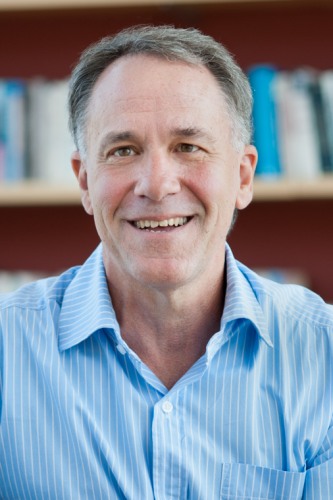
Daniel Jordan Smith
Biography
Daniel Jordan Smith joined Brown University in 1999. He is professor of anthropology and since 2016 has served as the inaugural director of Watson’s Africa Initiative. Smith conducts research in Nigeria focusing on a range of issues, including population processes, political culture, kinship, infrastructure, gender, and health. He won the 2008 Margaret Mead Award for his book, A Culture of Corruption: Everyday Deception and Popular Discontent in Nigeria (2007). Smith’s second book, AIDS Doesn’t Show Its Face: Inequality, Morality, and Social Change in Nigeria (2014) won the 2015 Elliott P. Skinner Award from the Association for Africanist Anthropology. He is also the author of To Be a Man Is Not a One-Day Job: Masculinity, Money, and Intimacy in Nigeria (2017) and Every Household Its Own Government: Improvised Infrastructure, Entrepreneurial Citizens, and the State in Nigeria (2022). In 2020, he was the recipient of a Guggenheim Fellowship.
Research
Professor Smith conducts research in medical anthropology, anthropological demography, and political anthropology in sub-Saharan Africa, with a specific focus on Nigeria. His research in medical and demographic anthropology includes work on HIV/AIDS, reproductive health and behavior, adolescent sexuality, marriage, gender, kinship, and rural-urban migration. His work on political culture in Nigeria includes studies of Pentecostal Christianity, vigilantism, corruption, and infrastructure. His most recent project investigated how Nigerians cope with widespread state failure to provide fundamental infrastructure, with particular attention to how the resulting entrepreneurial activities and informal economic enterprises are, paradoxically, central to the consolidation of state power and the substance of citizenship. His book based on this research, Every Household Its Own Government, was published in March 2022 by Princeton University Press. Smith’s current project examines the phenomenon of unfinished houses in Nigeria, using the stories that underlie these ubiquitous structures to depict and explain central features of contemporary African life.
Publications
2025 “Reflections on the Value of Anthropology for Understanding Population Processes.” Population and Development Review 51(1):575-596.
2024 “‘A Debt Never Dies’: Navigating Trust and Betrayal in Southeastern Nigeria.” Ethnography 25(4):486-504.
2024 “Conspicuous Redistribution: Money, Morality, and Masculinity in Nigeria.” Journal of Contemporary African Studies 42(2):230-244.
2023 “Water Entrepreneurs, Infrastructural Citizenship, and State Power in Nigeria.” Journal of Business Anthropology 12(2):183-291.
2022 Every Household Its Own Government: Improvised Infrastructure, Entrepreneurial Citizens, and the State in Nigeria. Princeton, NJ: Princeton University Press.
2022 “Why Is Donald Trump So Popular in Southeastern Nigeria and What Can We Learn from It?” In Corruption and Illiberal Politics in the Trump Era, Donna Goldstein and Kristen Drybread, eds. Routledge, pp. 149-161.
2021 “The Pentecostal Prosperity Gospel in Nigeria: Paradoxes of Corruption and Inequality.” Journal of Modern African Studies 59(1):103-122.
2020 “Masculinity, Money, and the Postponement of Parenthood in Nigeria.” Population and Development Review 46(1):101-120.
Teaching
Undergraduate
ANTH 66J: “So You Want to Change the World?: Anthropological Perspectives on Global Poverty and Development”; ANTH 100: "Introduction to Cultural Anthropology"; ANTH 110: "Anthropology and Global Social Problems"; ANTH 300: "Culture and Health"; ANTH 1310: “Global Health: Anthropological Perspectives”; ANTH 1313: “Are We Really All in This Together?: Culture, Structure, and Health Disparities"; ANTH 1320: “Anthropology and International Development: Ethnographic Perspectives on Poverty and Progress”; and ANTH 1960: “Anthropology of Infrastructure: Comparative Ethnographic Perspectives”; ANTH 1990: "Senior Seminar."
Graduate
ANTH 2010: “Principles of Cultural Anthropology”; “Issues in Anthropology and Population”; ANTH 2300: “Anthropological Demography”; ANTH 2304: “Issues in Anthropology and Population”; ANTH 2110: “Critical Perspectives: Social and Cultural Issues in Africa”; ANTH 2320: “Anthropology and Development: Critical Ethnographic Perspectives.”